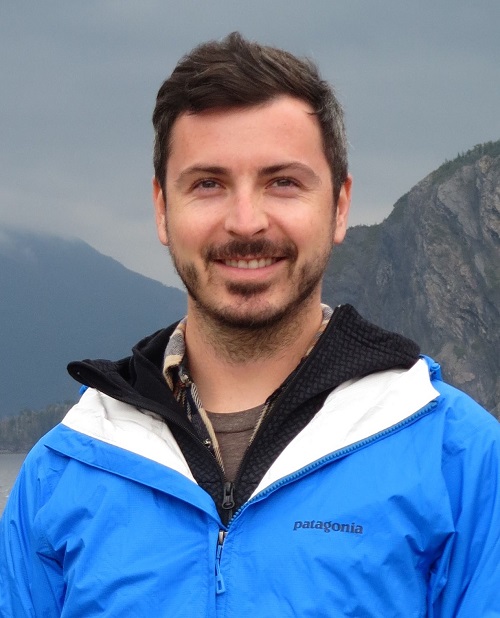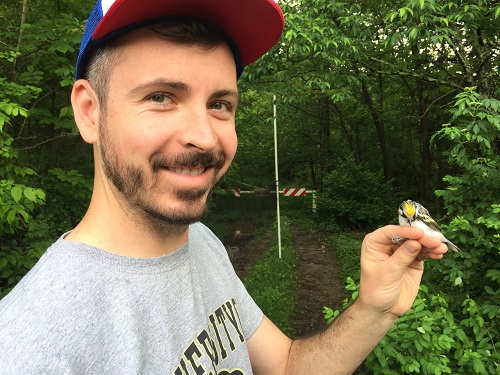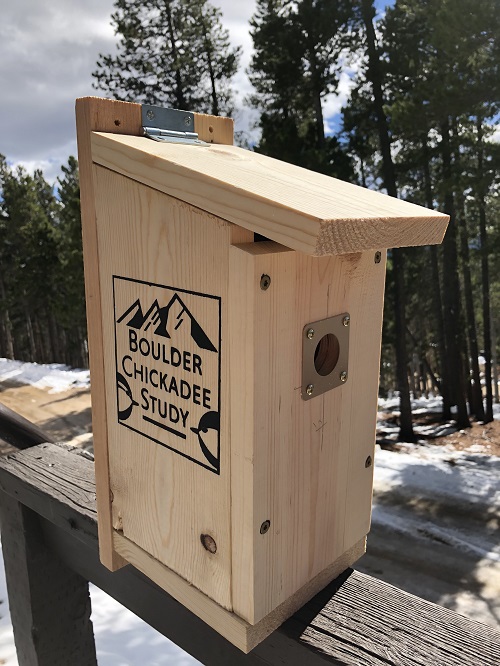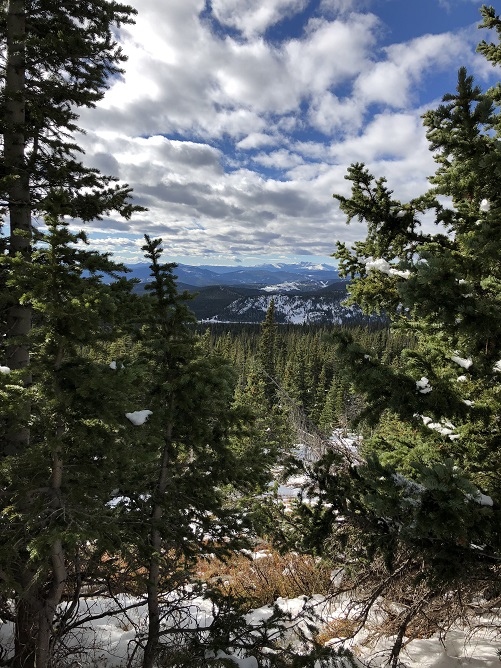About the department:
Home to a large Ecology and Evolutionary Biology Department (EBIO), the University of Colorado Boulder supports a diverse collection of faculty researching ecology and evolution. The EBIO graduate program is collegial and high-achieving and provides advanced training in a wide variety of biological disciplines including evolutionary genetics and ecology, behavior, landscape and community ecology, morphology, and systematics. Weekly seminars from both external scholars and graduate students in the EBIO program contribute to a dynamic and engaging environment. I am an assistant professor within the EBIO Department.
About the research:
Research in my lab applies genomics and field experiments to natural hybrid zones and closely related taxa in order to investigate the genetic architecture of reproductive isolation—the hallmark of speciation—and the genetic bases of traits relevant to speciation. This research also provides insight into the impacts of anthropogenic change, including climate change, on species distributions, interactions, and evolution.
What has been the biggest challenge as a new PI so far?
The biggest challenge for me so far has been time management. The additional duties and obligations that accompany a faculty position, versus being a postdoc, are interesting and fun, but finding the time to create and teach new courses, mentor multiple graduate students and postdocs, and write grants and manuscripts has been challenging.
What has been the biggest surprise so far about being a new PI?
The biggest surprise for me so far about being a new PI is that, although I have more to do, and a larger variety of things to do, than I ever have in my academic career I am less stressed out than I was as an undergraduate student, during my PhD, or as a postdoc. If nothing else, I suppose I’ve gotten much better at managing stress effectively.
How have you prepared to be a PI?
Prior to becoming a PI, I took advantage of opportunities to teach and design courses, to mentor undergraduate and graduate students, and to read literature about both mentoring and Diversity and Inclusion in STEM. I feel like those experiences have helped me prepare to be a PI, but that I would have also benefited from some training in personnel management and finance.
How do you/will you approach mentoring new lab members?
Prior to joining the lab, potential new lab members are provided with a guidelines and expectations document that clearly describes my expectations of them and what they should expect from me. This document has been developed in consultation with my lab group. Beyond being very up front about how our lab operates, I make sure to talk to new lab members about what they want to achieve and how they operate in group / lab settings.
Are you recruiting? If so, how do you/ will you choose new lab members?
I am not currently recruiting. When I am, I look for hard working students who want to be part of an inclusive and dynamic team.
When and why did you become a SSE member?
I became an SSE member in 2008 prior to attending my first SSE conference in Minnesota.
What does becoming a SSE member mean to you or your career? Being an SSE member has provided me the opportunity to connect with amazing people who have become friends and collaborators. I remember feeling very intimidated at my first SSE conference, but since then have been able to forge productive collaborations, find postdoctoral opportunities, and make great friends by being involved with SSE and by attending meetings.
How did your first Evolution Meeting affect your career?
My first evolution meeting was in 2008. It was the first big meeting I attended as a graduate student and I remember being very very overwhelmed, but also really excited to be surrounded by dynamic scientists doing interesting work. I couldn’t imagine then that I would eventually look forward to attending the meeting so that I could catch up with friends and colleagues.
Do you remember your first publication in Evolution or Evolution Letters (acceptance or rejection)?
Yes! The second paper I published as a postdoc at the Cornell Lab of Ornithology was in Evolution. The review process was thorough and I was happy with the end product and very excited to publish my first paper in the journal.
Besides research, how do you promote science?
I worked as a naturalist for many years as an undergrad and during the year I took off between by PhD and my postdoc. I love giving public seminars about natural history and evolution and take advantage of opportunities to do so even as a new faculty member. Most recently I have given talks at birding conventions and for environmental groups.
Do you teach evolution? What is the hardest concept to teach?
I teach populations genetics and I think the hardest concept to teach is coalescent theory. It is intuitive once you understand it, but when you present it to someone who has never thought about it before it takes some time for them to wrap their heads around it.
Do you have a time management tip to share?
I would also suggest blocking out writing time (a full day if you can manage it) and make sure that you only respond to emails a couple of times a day. Email can completely take over your life.
What book should every evolutionary biologist read?
On The Origin of Species.
What one piece of advice would you give to a starting graduate student?
Publish early and aim to tell a story with the publications you produce during your degree. Don’t aim for least publishable units, but make sure you get experience publishing early so that you aren’t daunted by it at the end of your degree.
What one piece of advice would you give to a postdoc?
Work hard and enjoy this special time.
Did you ever have something go wrong in a talk?
Prior to the beginning of a talk I was giving at an ASN meeting at Asilomar the power went out. I gave my talk walking around the room holding my computer to a really engaged group. The only talk award I’ve ever won was for that talk!
What is something most people don’t know about you?
I was a competitive figure skater.
 Scott A. Taylor
Scott A. Taylor

